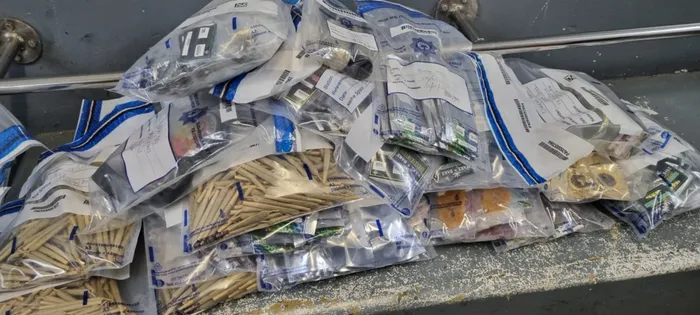A Drug Enforcement Agency success hinges on proper resourcing

By Prof. B. Dikela Majuqwana
South Africa is known for many kinds of crime that make regular news headlines. All these presently require the active attention of the SAPS and the metro police departments.
However, in recent years, drug usage has spread in South Africa, with damaging exposure for individuals, families, and communities alike. The range of drugs in terms of the harm they cause and their sources of supply is growing. Sources range from locally produced cheap varieties, such as nyaope, to different kinds from overseas, such as cocaine and heroin. It is not exactly known who are the leading local sources, but it is very common for facilities to be raided and arrests made by police.
There are allegations that some foreign nationals are allegedly involved in drug dealing. At the same time, there is a perception that some members of law enforcement agencies are working with drug dealers for financial gain or some are afraid to act against dealers out of fear of reprisals. Either way, there is a need to establish the reasons for the failure of law enforcement to stem the tide and prevent further harm to society arising from drugs. This is the motivation behind proposals to establish a Drug Enforcement Agency to eliminate illegal drug use and to prevent further harm to society. A question that is of public interest is the viability of this proposal and how best to make it a success.
Drug use is a common problem around the world, to the extent that a number of countries have established special agencies to fight the scourge.Among these are the Philippines and the United States of America. The success of these agencies is varied but depends on the availability of adequate resources and the competence of their personnel. In the case of the US, the Drug Enforcement Administration employs some 10000 people, including special agents, investigators, intelligence analysts, scientists (chemists, statisticians, psychologists, and so on), various professionals and a number of domestic and foreign offices around the globe.
The scale of operations involved is phenomenal. Clearly, success or failure of any specialised anti-drugs institution depends on the professionalism and quality of the leadership involved. This is so because criminals will do all in their power, including putting their lives at risk, in order to undermine law enforcement agencies. If they have been able to undermine the SAPS, they will stop at nothing to achieve the same goal with the DEA. Furthermore, such an agency cannot achieve its goals without, at the same time, working in collaboration with existing law enforcement and crime prevention agencies, such as the SAPS. That is why setting up a drug enforcement agency should be carried out alongside initiatives to root criminality from the ranks of all existing law enforcement agencies.
In the current economic environment, where resources in terms of money and personnel are limited, it is crucial that the DEA is not seen as competing against existing law enforcement structures. This raises a question about its appropriate political home. If it is located within the SAPS, this will require increasing the budget. Placing the agency within the existing SAPS carries the risk of exposing it to current failures.
The alternative option is to create a new a political home for it, including a Cabinet Minister who is fully accountable for the role. A third option is to create a special task team to set up, incubate and operate the agency for a limited period of time, say up to five years before responsibility is transferred back to the SAPS. This would allow time for the SAPS to improve its strategic and operational performance in preparation for the new agency. This incubation role can be undertaken as a special project of the Presidency to raise its profile in the eyes of the public. At the same time, this will give a strong signal to drug dealers and users alike that their days are truly numbered. All options require an appropriate appraisal.
The responsibility for overcoming drugs in our society cannot be done by law enforcement alone. It requires an integrated approach to empower individuals, families, and communities to take the lead and take ownership of it. Therefore, even before the DEA is set up, there is an urgent need for a concerted public awareness campaign against drugs rooted in communities and carried out in collaboration with other branches of government, including social development, education, transport, health, home affairs and prominent public figures.
Awareness works best when maximum publicity is given to the consequences of drug use and when those who deal in drugs are made to feel the damage they cause to others. This, too, can be undertaken before or as the DEA is being established. In addition to awareness, prevention is key to secure information and to track syndicates involved in production and distribution of old and new drugs as well as those involved in smuggling. With prevention comes demand reduction, rehabilitation of dealers and users, and reintegration of offenders and users after rehabilitation.
The complexity of the task is enormous. It is made more difficult by the fact that there is plenty of cross-border crime involving drugs in South Africa, with hardly any visible cross-border policing. Success requires the cooperation of foreign governments, including home countries of foreign dealers and users found in South Africa. This adds to the cost of prevention and underlines the benefits of having effective domestic awareness campaigns. The future well being of South Africa hinges on the success of efforts to eliminate illegal drugs and gaining control over crime.
*Prof. B. Dikela Majuqwana is a founding member of the National Union of Scientists and Engineers.
Related Topics: